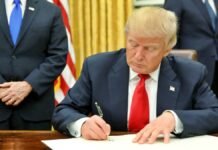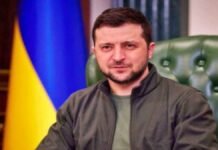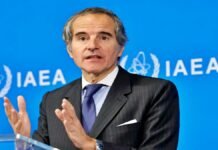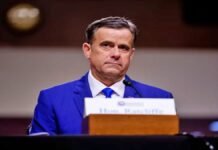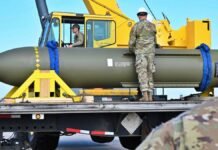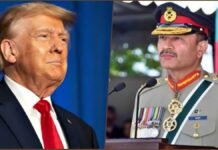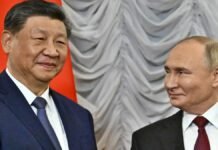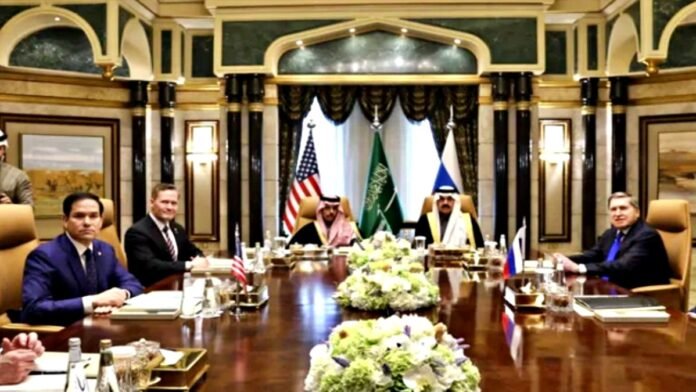
Key Points:
- Talks Begin: US and Russian officials convened in Riyadh on March 24, 2025, following productive discussions between US and Ukrainian delegations the previous day.
- Focus Areas: The negotiations aim to secure a partial ceasefire, including a maritime truce in the Black Sea and a halt to attacks on energy infrastructure.
- Challenges Ahead: Russia has downplayed expectations for a swift resolution, citing complexities in implementing any ceasefire agreement.
Riyadh: In a bid to end the three-year-long Ukraine war, US and Russian officials began high-stakes negotiations in Saudi Arabia on Monday. The talks come a day after US delegates met with Ukrainian representatives to discuss strategies for achieving peace. US President Donald Trump has intensified efforts to broker a ceasefire, aiming for both immediate relief and long-term stability in the region.
The discussions, initially planned as simultaneous meetings for shuttle diplomacy, are now taking place sequentially. The US delegation, led by real estate mogul-turned-diplomat Steve Witkoff, is focusing on two key objectives: halting attacks on energy facilities and securing a maritime ceasefire in the Black Sea to ensure safe commercial shipping.
Ukraine-US Talks: Progress Made
On Sunday, Ukraine’s Defense Minister Rustem Umerov led his country’s delegation in talks with US officials. Umerov described the discussions as “productive and focused,” emphasizing Ukraine’s commitment to achieving a “just and lasting peace.” Key topics included safeguarding energy infrastructure and addressing long-range strikes.
President Volodymyr Zelenskyy expressed optimism about the talks but reiterated the need for global pressure on Russian President Vladimir Putin to halt aggression. “The one who brought this war must take it away,” Zelenskyy said in an evening address.
US-Russia Negotiations: Key Players and Goals
The US delegation includes Andrew Peek from the White House National Security Council and Michael Anton from the State Department. Russia is represented by Grigory Karasin, chairman of the Federation Council’s Foreign Affairs Committee, and Sergei Beseda, an advisor to Russia’s Federal Security Service.
The primary goal is to establish a maritime ceasefire in the Black Sea, which would allow free shipping while reducing tensions between Ukraine and Russia. However, broader agreements remain elusive due to differing interpretations of ceasefire terms. While the US advocates for protecting all energy infrastructure, Russia insists on limiting the scope to energy facilities alone.
Challenges Ahead
Despite initial optimism from US envoy Steve Witkoff, who anticipates progress toward a comprehensive ceasefire, Kremlin spokesperson Dmitry Peskov has tempered expectations. “We are only at the beginning of this path,” Peskov said, highlighting unresolved questions about implementation.
Russia has proposed halting attacks solely on energy facilities but continues cross-border strikes. Over the weekend, Russian drone attacks killed several civilians in Ukraine, including children. Meanwhile, Moscow accuses Kyiv of targeting gas facilities in Krasnodar.
As negotiations continue in Riyadh, hopes for peace remain cautiously optimistic. The talks mark a significant step toward resolving Europe’s most devastating conflict since World War II. While progress may be slow, efforts to secure partial agreements such as Black Sea shipping safety could pave the way for broader resolutions. Both sides face immense pressure to bridge their differences and deliver tangible results for millions affected by the ongoing war.






